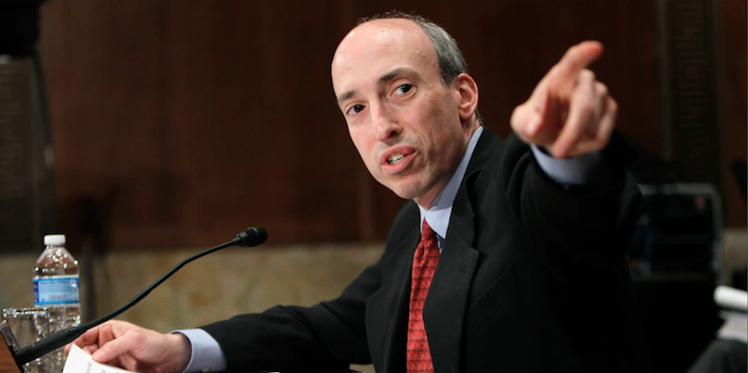Trending Assets
Top investors this month
Trending Assets
Top investors this month
Gary Gensler's Incomplete Advice
Being a first-generation college student was lonely. In the decade since graduating it's been frustrating. The number one thing I missed out on was not someone who could walk me through registering for classes, but someone to tell me that it's not normal to finance your education on a timeline measured in decades.
I take responsibility for the decisions I've made- my first year of college I remember using a DCF to calculate the present value of future student loan payments and realized I was in for a long journey. I could have chosen to drop out then— but I was getting great grades and had no idea how I would explain dropping out to my parents. They were so proud I had made it to university.
This last week I was irked by former investment banker and current Chair of the SEC Gary Gensler who posted a video to Twitter advising new college students to just save $5 per week so they could have $130k by the time they turned 65.
He was talking to people like me. That's basically my story. (Except with $50 a month starting sophomore year instead of my first year).
I had a college professor who told me the same advice. And I followed it. I got into the early habit of setting aside $50 a month earned from my work-study jobs to save for the long term. After college that turned into an automated process, and I upped the contribution in order to pay off my $40k in student debt within 10 years of graduating. I've been a paragon of the "start saving early" philosophy.
So having taken Gensler's advice, how would I rate it?
May 2021 was the 10 year mark since I graduated college. That was the absolute longest I wanted to have student loans hanging over my head. (If you save $231 per month at an 8% return for 10 years you'll save $40k. That was the track I was on).
I didn't make it. Or at least, not using the Gary Gensler method.
In 2016 my Dad got sick and our insurance didn't pay for all of his medical bills. I racked up as much credit card debt as I had student debt.
Gensler's advice is poor. Not because you shouldn't save (you definitely should), but because it's incomplete.

The financial obstacles you will have to overcome in life are not one-dimensional. If all you needed to worry about was retirement, then saving $5 a week for 45 years is a good start. But you have to prepare for so much more than that. You will need to save for rent, health care costs, student debt, emergencies, inflation, accidents, utilities, taxes— the list goes on.
"Saving early" needs some major help from a higher rate of return, a higher paying job, lower living expenses, more upward mobility, help from family (if lucky), investment-minded peers, more investment understanding and more access to contemporary financial tools.
Do you think Gensler was a practitioner of his own advice? Do you think he opened a savings account and was putting away $5 a week while he was an undergrad at Wharton? He must have been extremely good at saving— that must be why when he was my age (30) he became one of the youngest people ever to have made partner at Goldman Sachs. I hear the Sachs love a good saver. [derogatory]
The solutions to the financial problems of people like me won't come from people like Gensler. Gensler's SEC recently threatened to sue Coinbase over a 4% interest earning account. I use BlockFi, Gemini, and Celsius for their interest bearing accounts. I need to because 0.05% interest in a normal savings account doesn't cut it. Why would I save money in a normal bank account when inflation is 5% and real returns are negative?
I'm sure Gensler seeks to protect investors. But the lived impact is paternalistic.
The discussion, knowledge, and advice I've gleaned from peers who have the same skin in the game as I do have been orders of magnitude more helpful.
Some of the best meta-advice I've ever received is:
"Try and understand the journey of the person giving you advice before incorporating it into your own life. Their advice is only useful if they're on the same journey you are on."
Stated another way: Be wary of taking advice from people who don't know anything about you.
I like the path Commonstock is on. The ethos of adding more context to who is talking helps individuals filter for what advice is meant for them... and what advice is meant for someone else.
CNBC
Coinbase shares fall after it reveals SEC plans to sue over interest-earning product
Coinbase could be going to court against the SEC as the regulatory agency notified the crypto exchange of its plans to sue over its interest-earning product.
Already have an account?